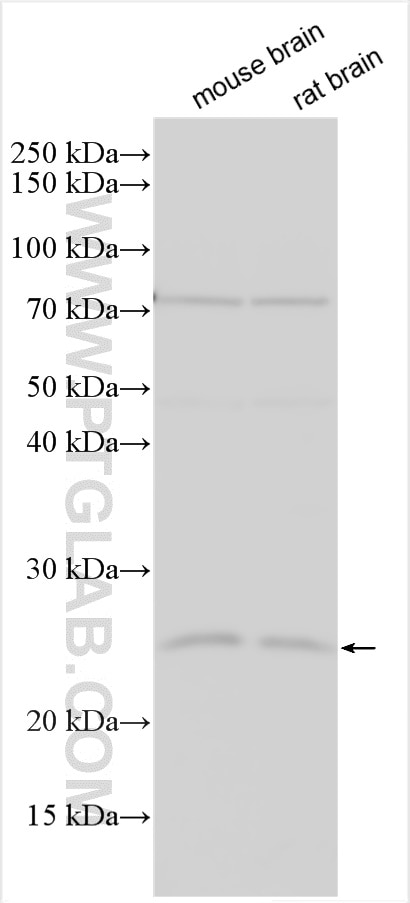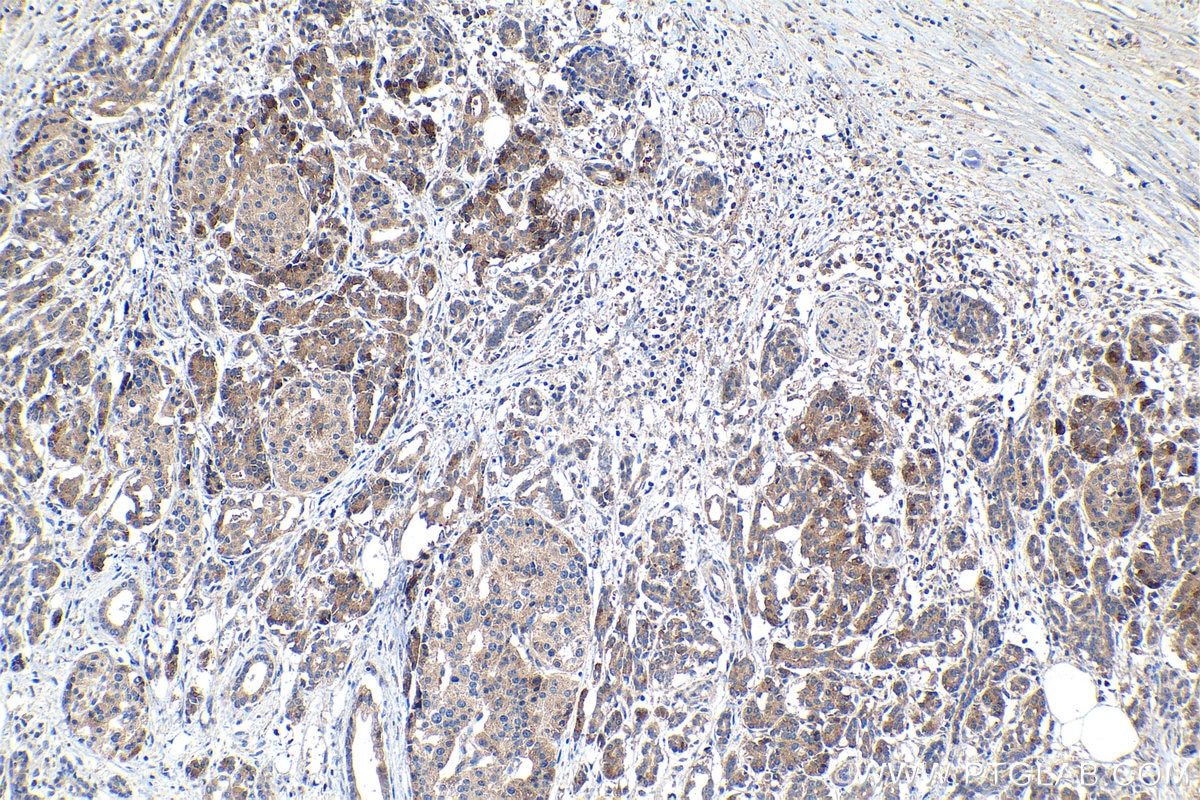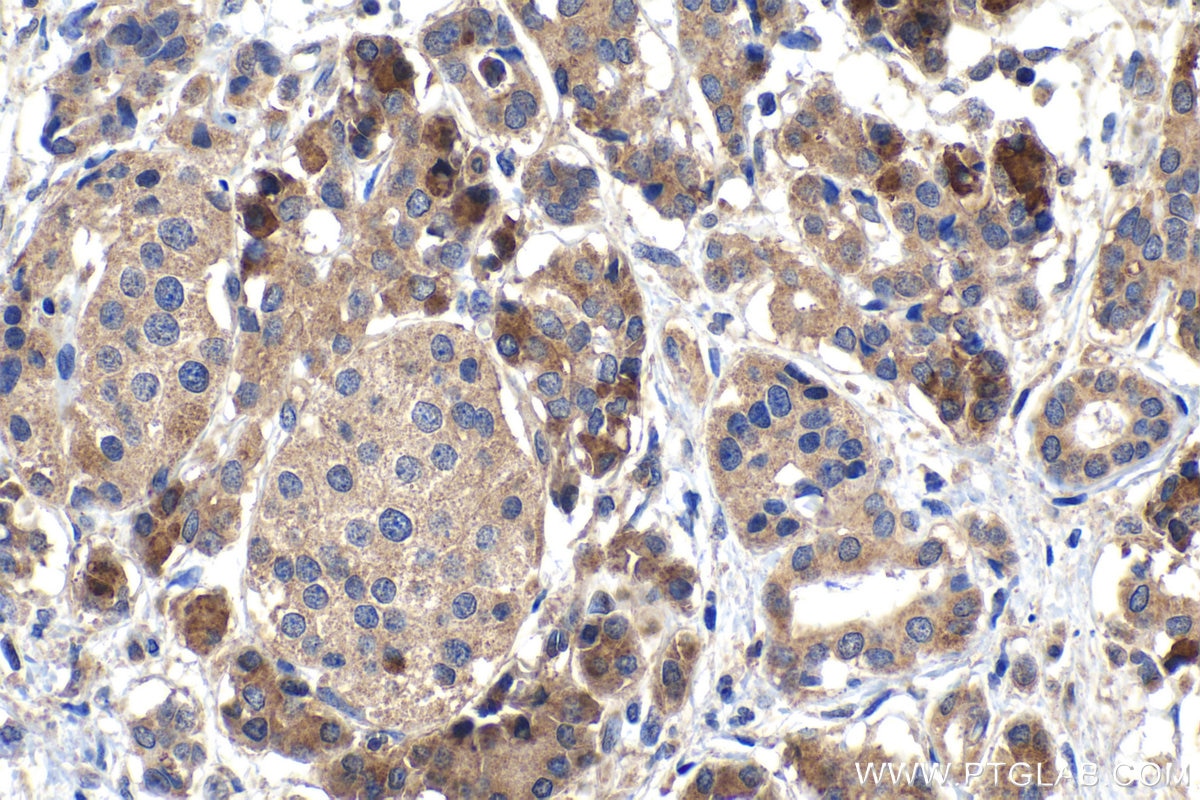Anticorps Polyclonal de lapin anti-SNX10
SNX10 Polyclonal Antibody for WB, IHC, ELISA
Hôte / Isotype
Lapin / IgG
Réactivité testée
Humain, rat, souris
Applications
WB, IHC, ELISA
Conjugaison
Non conjugué
N° de cat : 26727-1-AP
Synonymes
Galerie de données de validation
Applications testées
| Résultats positifs en WB | tissu cérébral de souris, tissu cérébral de rat |
| Résultats positifs en IHC | tissu de cancer du pancréas humain, il est suggéré de démasquer l'antigène avec un tampon de TE buffer pH 9.0; (*) À défaut, 'le démasquage de l'antigène peut être 'effectué avec un tampon citrate pH 6,0. |
Dilution recommandée
| Application | Dilution |
|---|---|
| Western Blot (WB) | WB : 1:1000-1:8000 |
| Immunohistochimie (IHC) | IHC : 1:50-1:500 |
| It is recommended that this reagent should be titrated in each testing system to obtain optimal results. | |
| Sample-dependent, check data in validation data gallery | |
Informations sur le produit
26727-1-AP cible SNX10 dans les applications de WB, IHC, ELISA et montre une réactivité avec des échantillons Humain, rat, souris
| Réactivité | Humain, rat, souris |
| Hôte / Isotype | Lapin / IgG |
| Clonalité | Polyclonal |
| Type | Anticorps |
| Immunogène | SNX10 Protéine recombinante Ag24977 |
| Nom complet | sorting nexin 10 |
| Masse moléculaire calculée | 201 aa, 24 kDa |
| Poids moléculaire observé | 25 kDa |
| Numéro d’acquisition GenBank | BC034992 |
| Symbole du gène | SNX10 |
| Identification du gène (NCBI) | 29887 |
| Conjugaison | Non conjugué |
| Forme | Liquide |
| Méthode de purification | Purification par affinité contre l'antigène |
| Tampon de stockage | PBS with 0.02% sodium azide and 50% glycerol |
| Conditions de stockage | Stocker à -20°C. Stable pendant un an après l'expédition. L'aliquotage n'est pas nécessaire pour le stockage à -20oC Les 20ul contiennent 0,1% de BSA. |
Informations générales
Sorting nexins are a diverse group of cytoplasmic and membrane-associated proteins classified by the presence of a phospholipid-binding motif PX domain (PMID:12461558). They are involved in endocytosis and protein trafficking. Mutations in SNX10 (Sorting nexin-10) have been found to account for approximately 4% of all human autosomal recessive osteopetrosis (ARO) that is a genetically heterogeneous disorder caused by reduced bone resorption by osteoclasts (PMID: 23280965; PMID: 28592808).
Protocole
| Product Specific Protocols | |
|---|---|
| WB protocol for SNX10 antibody 26727-1-AP | Download protocol |
| IHC protocol for SNX10 antibody 26727-1-AP | Download protocol |
| Standard Protocols | |
|---|---|
| Click here to view our Standard Protocols |




